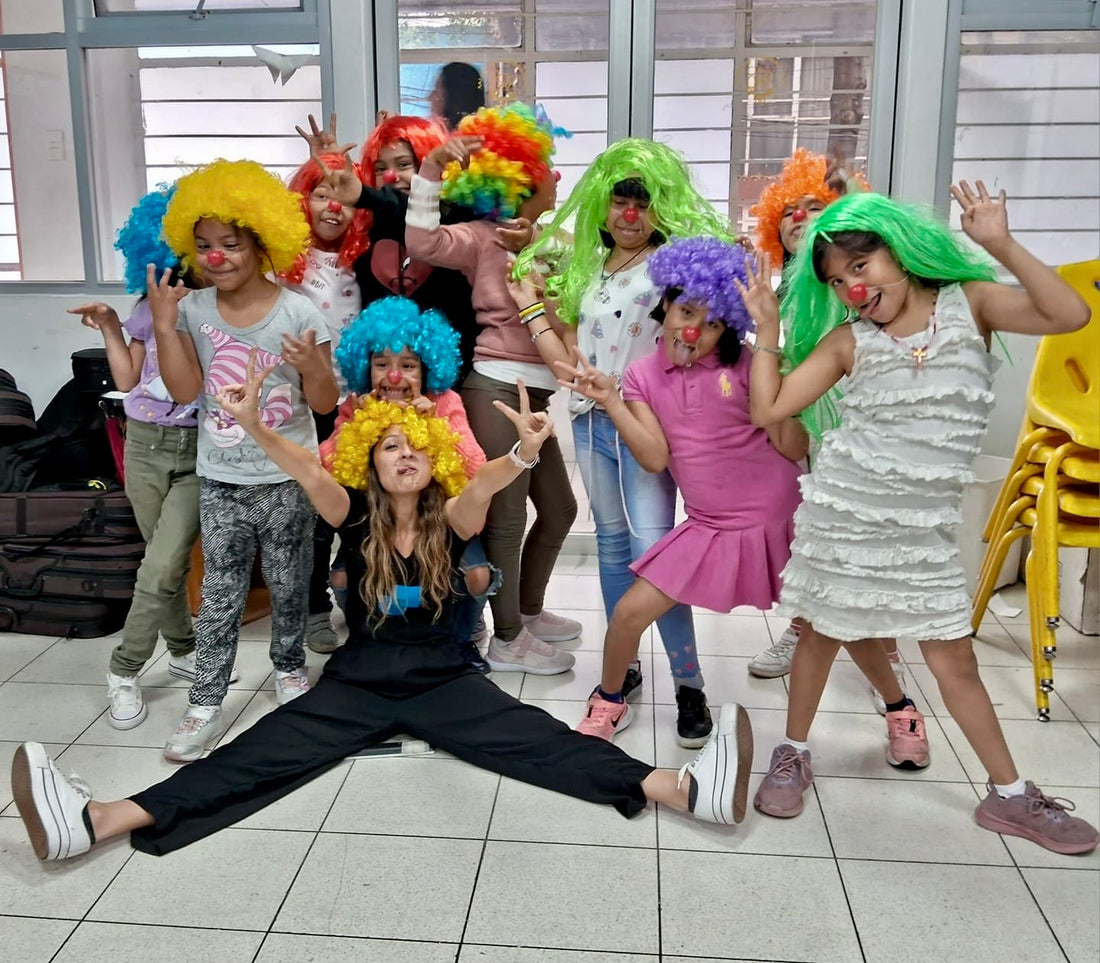Comprehensive Child Development: Building a Future Free of Violence
At the heart of building peaceful and healthy societies is the comprehensive development of girls, boys and adolescents. Comprehensive child development is a complex and multifaceted process that encompasses various dimensions of the physical, emotional, social and cognitive growth of girls and boys. These interconnected aspects form the fundamental axes that shape the childhood experience and, in turn, lay the foundation and potential for a healthy and balanced adult life.
Our Zero Violence project recognizes the fundamental importance of this premise and embraces a psychosocial intervention as a cornerstone to guarantee a future without violence. For Agenda Zero, one of the fundamental premises focuses on comprehensive child development, as a right that girls and boys have in Mexico, but also as a strategy to enhance the maximum development of girls and boys in their present and future. and contribute to the prevention of violence from childhood.
Axes of Comprehensive Child Development
The axes of comprehensive child development are the pillars on which the building of a person's life is built. Caring for each axis equitably and providing opportunities for growth in all areas is essential to cultivating resilient adults, capable of facing life's challenges and contributing positively to society.
Physical Axis:
Physical development constitutes the first axis of comprehensive development. From birth to adolescence, girls and boys experience rapid physical growth that directly affects their health and well-being. Proper nutrition, regular exercise, and nutritional and medical care are crucial elements in this process. This axis not only contributes to the prevention of diseases, but also lays the foundation for healthy lifestyle habits throughout life.
Emotional Axis:
Emotional development is another essential axis, since it influences the way in which girls and boys perceive, understand and manage their emotions. Emotional intelligence, which includes emotional awareness and empathy, is crucial for establishing healthy relationships and facing emotional challenges. Appropriate emotional expression and regulation are key skills that contribute to emotional well-being throughout life.
Social Axis:
Social development focuses on how girls and boys interact with others and build meaningful relationships. Learning social skills, such as teamwork, effective communication, and conflict resolution, is essential for developing strong connections. This axis also includes the understanding of social norms and the acquisition of skills that facilitate integration into society.
Cognitive Axis:
Cognitive development encompasses the acquisition of mental skills and information processing. From early childhood, children develop cognitive skills such as memory, attention and problem solving. Stimulating curiosity, providing opportunities for exploration and nurturing creativity are fundamental elements of this axis, as they contribute to the development of critical thinking skills, creative thinking and adaptability.
Psychosocial Intervention: A Holistic Approach
Our Zero Violence project goes beyond addressing violence in a superficial way. It recognizes the need for psychosocial intervention, a holistic approach that considers emotional and social factors. This approach not only addresses the visible consequences of violence, but also delves into the roots, addressing the emotional experiences of girls, boys and adolescents who are survivors of violence.
Importance of Psychosocial Intervention in Zero Violence
1. Repair of Emotional Damage: Violence leaves invisible scars on the emotional well-being of girls, boys and adolescents. The project's psychosocial intervention focuses on repairing this damage, providing a safe space to express emotions and build resilience, with special attention to childhood trauma.
2. Promotion of Social Skills: Comprehensive development involves solid social skills. The project's workshops and activities cultivate empathy, effective communication and collaboration, essential skills for healthy relationships, with themselves and the world around them.
3. Prevention of Future Problems: Addressing emotional and social needs from an early age is key to preventing future problems. Psychosocial intervention contributes to the creation of a solid foundation for continued growth and development, with special emphasis on non-violent conflict resolution.
4. Individual Empowerment: By recognizing and addressing the emotional experiences of girls, boys and adolescents, the project gives them the tools to be active agents in building their own emotional and social well-being.
Tangible Results: Resilient and Peaceful Communities
The benefits of a well-implemented psychosocial intervention are reflected in more resilient and peaceful communities. The girls, boys and adolescents who participate in the Zero Violence project not only develop emotional and social skills, but also become active defenders of non-violence in their communities.
Childhood is the present but it is also the future.
Comprehensive child development is the foundation on which a promising future for human beings is built. The Zero Violence project of the Agenda Cero foundation demonstrates that effective psychosocial intervention is essential to create societies where violence has no place. By investing in the comprehensive development of girls, boys and adolescents, we are forging a path towards healthier, happier and violence-free communities. The importance of this work transcends the present, leaving a lasting legacy for future generations.

